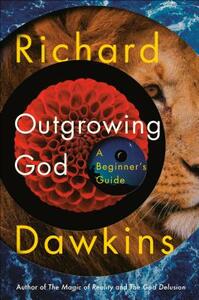Take a photo of a barcode or cover
از کتاب هایی که باعث میشه بخوام برای ستاره دادن سختگیر شم تا وقتی پنج میدم به یه کتاب معلوم شه تفاوتش.
نمیخواستم تموم شه، کتاب خوبی بود. هم مدل نوشتنش و هم چیزایی که انتخاب کرده بود بررسی کنه خوب بودن.
کاش یه کتاب مینوشت اون جاهایی که اینجا خلاصه گفته و نوشته که در بحث کتاب نمیگنجه(واقعا بسطشون نمیگنجید و کتاب خیلی گنده ای میشد) رو کامل توش توضیح میداد و مینوشت.
هم ایبوک رو خوندم هم ادیوبوک رو گوش کردم؛ گوش دادنی خوش میگذشت. خودش خونده کتاب رو و خیلی خوب خونده! جدی خوش میگذره گوش دادن بهش.
کتاب اولاش بررسی گفته های ادیان رو داره، بررسی متون اسطوره ها رو هم کنارشون میاره. خیلی زیبا کنار هم میاره.
خودمم خیلی اسطوره دوست دارم؛ تلاش میکنم بین اسطوره ها و دین ها و فولکتیل ها تشابه و همترازی پیدا کنم پس مطمئنن عاشق متنی میشم که اینا رو قشنگ کنار هم آورده. منطقا کامل نیست ولی برای این کتاب کافی بود.
اصلن بی احترامی نمیکنه، یه سری جاها فقط متن تو بایبل، عهد عتیق و جدید و... رو آورده و آنقدر اینا یه سری جاها توهین به شعورن شاید به نظر بیاد داره مسخره میکنه ولی خب کاری نکرده متن رو آورده.
از وسطاش یکم ارجاع تاریخی میده و تناقضاتی که یه سری نوشته ها با تاریخ دارن.
اون وسط اخلاق و علوم انسانی رو یکم میاره و ارجاع میده. چندین تا کتاب و شخص معرفی کرد که میخوام بخونم راجع بهشون.
تو یه سری داستان های دینی از یه سری چیز ها یاد شده که امکان نداشته تو اون دوره تاریخی اونجا باشن یا امثال همینا؛ و خب یه سری مدارک دیگه جغرافیایی تاریخی برای داستان هایی مثل نوح و موسی.
بعدش چیزای علمی از زیست و فیزیک و شیمی شروع میشه، مشخصن زیست و تکامل رو کامل تر میگه خب چون داوکینزه؛ تهش به نجوم و زمین ختم میشه.
آخراش بحث علم به طور کلی رو میاره و اینکه چرا مثلن ارسطو به سری چیزا رو نگفته و کلن جمع بندی میکنه .
❇️ یکم چیزایی که حین خوندن نوشته بودم رو بیارم:
•وقتی بهم میگن تو که انقدر کتاب تاریخی خوندی(میگن، واقعن اونقدر زیاد نخوندم) پس چرا تعصب نداری رو تاریخمون و هخامنشی فلان و.... ؛ منم همین جوابی رو میدم که داوکینز نوشته.(الان که فکر میکنم زیاد میشه نمینویسم؛ ولی به طور خلاصه از کجا میدونی اون درسته وقتی حافظه انسان هم گچتصویر سازی میکنی و چیزی که فیزیکلی بودی و با چشم های خودت دیدی رو بعدن اشتباه به یاد میاری بدون اینکه متوجه بشی ، چون مغزت تصویرسازی کرده. چه برسه دهن به دهن بچرخه، چند سال بگذره، برای نوشتن، ثبت و ... باید از چه کسایی اجازه میگرفتن، چی باید مینوشتن تا بمونه و....
و ارجاع میدم به جمله های اول تاریخ بیهقی درباره تاریخ نوشتن و ...)
• وای دلیل درد زایمان خانم ها خوردن سیبه بوده
نمیخواستم تموم شه، کتاب خوبی بود. هم مدل نوشتنش و هم چیزایی که انتخاب کرده بود بررسی کنه خوب بودن.
کاش یه کتاب مینوشت اون جاهایی که اینجا خلاصه گفته و نوشته که در بحث کتاب نمیگنجه(واقعا بسطشون نمیگنجید و کتاب خیلی گنده ای میشد) رو کامل توش توضیح میداد و مینوشت.
هم ایبوک رو خوندم هم ادیوبوک رو گوش کردم؛ گوش دادنی خوش میگذشت. خودش خونده کتاب رو و خیلی خوب خونده! جدی خوش میگذره گوش دادن بهش.
کتاب اولاش بررسی گفته های ادیان رو داره، بررسی متون اسطوره ها رو هم کنارشون میاره. خیلی زیبا کنار هم میاره.
خودمم خیلی اسطوره دوست دارم؛ تلاش میکنم بین اسطوره ها و دین ها و فولکتیل ها تشابه و همترازی پیدا کنم پس مطمئنن عاشق متنی میشم که اینا رو قشنگ کنار هم آورده. منطقا کامل نیست ولی برای این کتاب کافی بود.
اصلن بی احترامی نمیکنه، یه سری جاها فقط متن تو بایبل، عهد عتیق و جدید و... رو آورده و آنقدر اینا یه سری جاها توهین به شعورن شاید به نظر بیاد داره مسخره میکنه ولی خب کاری نکرده متن رو آورده.
از وسطاش یکم ارجاع تاریخی میده و تناقضاتی که یه سری نوشته ها با تاریخ دارن.
اون وسط اخلاق و علوم انسانی رو یکم میاره و ارجاع میده. چندین تا کتاب و شخص معرفی کرد که میخوام بخونم راجع بهشون.
تو یه سری داستان های دینی از یه سری چیز ها یاد شده که امکان نداشته تو اون دوره تاریخی اونجا باشن یا امثال همینا؛ و خب یه سری مدارک دیگه جغرافیایی تاریخی برای داستان هایی مثل نوح و موسی.
بعدش چیزای علمی از زیست و فیزیک و شیمی شروع میشه، مشخصن زیست و تکامل رو کامل تر میگه خب چون داوکینزه؛ تهش به نجوم و زمین ختم میشه.
آخراش بحث علم به طور کلی رو میاره و اینکه چرا مثلن ارسطو به سری چیزا رو نگفته و کلن جمع بندی میکنه .
❇️ یکم چیزایی که حین خوندن نوشته بودم رو بیارم:
•وقتی بهم میگن تو که انقدر کتاب تاریخی خوندی(میگن، واقعن اونقدر زیاد نخوندم) پس چرا تعصب نداری رو تاریخمون و هخامنشی فلان و.... ؛ منم همین جوابی رو میدم که داوکینز نوشته.(الان که فکر میکنم زیاد میشه نمینویسم؛ ولی به طور خلاصه از کجا میدونی اون درسته وقتی حافظه انسان هم گچتصویر سازی میکنی و چیزی که فیزیکلی بودی و با چشم های خودت دیدی رو بعدن اشتباه به یاد میاری بدون اینکه متوجه بشی ، چون مغزت تصویرسازی کرده. چه برسه دهن به دهن بچرخه، چند سال بگذره، برای نوشتن، ثبت و ... باید از چه کسایی اجازه میگرفتن، چی باید مینوشتن تا بمونه و....
و ارجاع میدم به جمله های اول تاریخ بیهقی درباره تاریخ نوشتن و ...)
• وای دلیل درد زایمان خانم ها خوردن سیبه بوده
funny
informative
medium-paced
informative
reflective
medium-paced
a survey of some of the questions that might be asked by those who are questioning their religious beliefs. it doesn’t go deep enough into any one topic, but it’s a good starting point.
informative
reflective
slow-paced
Much slower than his other book the God Delusion.
informative
inspiring
reflective
medium-paced
informative
inspiring
reflective
medium-paced
It was ok but I lost interest. Too repetitive of other atheism books
adventurous
informative
inspiring
fast-paced
Quick overview of science and religion for those who don't feel secure in religion. The bit about the Ten Commandments feels especially relevant right now. I wish it went a bit more in depth on some subjects, but it's still a solid resource for anyone atheist-curious.





